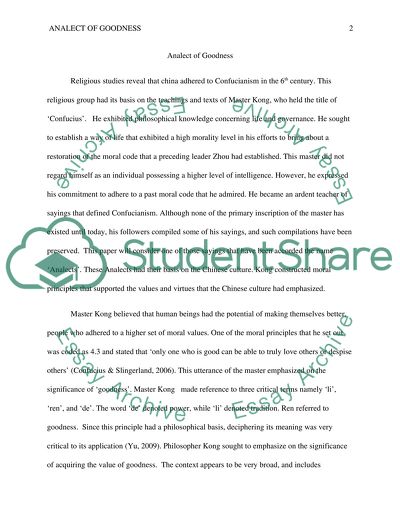Confucianism (Analects) Essay Example | Topics and Well Written Essays - 750 words. Retrieved from https://studentshare.org/religion-and-theology/1471790-confucianism-analects
Confucianism (Analects) Essay Example | Topics and Well Written Essays - 750 Words. https://studentshare.org/religion-and-theology/1471790-confucianism-analects.


